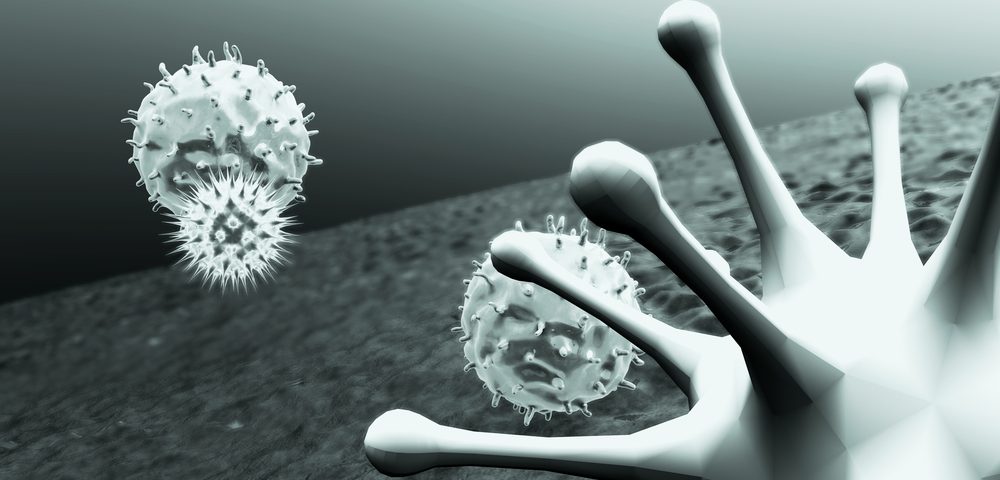BeiGene’s investigational anti-PD-1 inhibitor tislelizumab is well-tolerated and showed early signs of efficacy in patients with advanced nasopharyngeal cancer, with more than 40% of patients achieving a response to treatment, preliminary Phase 2 results show.
The findings were presented at the 2019 American Society of Clinical Oncology Annual Meeting, in Chicago, in a poster titled “Preliminary Results from Tislelizumab in Chinese Patients with Nasopharyngeal Cancer (NPC) Phase 1/2.”
Tislelizumab belongs to a class of immunotherapies known as immune checkpoint inhibitors. It is designed to bind to PD-1, a cell surface receptor in immune cells that is often hijacked by cancer cells to dampen immune responses.
Inhibitors of PD-1 are widely used in cancer therapeutics to reactivate the immune system to attack tumors.
A key difference between tislelizumab and other PD-1 antibodies is that tislelizumab contains an engineered region than minimizes the possibility of negative interactions with other immune cells.
The treatment is being investigated across multiple cancer types, including lymphoma, lung cancer, liver cancer, gastric cancer, bladder cancer, and cancer of the esophagus.
The ongoing Phase 1/2 trial (CTR20160872) was designed to assess the effects of tislelizumab in Chinese patients with different advanced solid tumors. It consisted of a dose-verification Phase 1 part, in which researchers determined the best dose was 200 mg every three weeks, followed by an expansion Phase 2 part in select cancer types.
At the meeting, researchers presented preliminary results from a group of 21 Chinese patients with nasopharyngeal cancer — a cancer that affects the throat behind the nose. Most patients (95%) had received at least one prior line of therapy before being treated with tislelizumab.
After a median follow-up of 11.7 months, nine patients were still on treatment. The median duration of treatment was 7.5 months (ranging from 2.1 to 15.8 months).
Responses were seen in nine patients (43%), and an additional nine (43%) achieved stable disease after treatment. Responses lasted for a median of 8.3 months, and patients lived without their disease worsening for a median of 10.4 months.
Importantly, clinical benefit was seen regardless of PD-L1 expression, which often predicts responses to anti-PD-1 therapies.
Side effects related to tislelizumab treatment occurred in 14 patients, with the most common being hypothyroidism, anemia, increased AST levels (a liver enzyme that may suggest liver damage), and coughing up blood.
“This is the first presentation of tislelizumab data in a population of patients with NPC, and we are encouraged by the objective response rate of 43% in Chinese patients with locally advanced or metastatic NPC,” Siyang Wang, MD, the poster’s first author, said in a press release. “Tislelizumab was also generally well-tolerated in these patients.”
“We hope that further study of tislelizumab may lead to a new treatment for the large number of patients with these tumors in need,” added Wang, who is chief physician in the department of head and neck oncology at The Fifth Affiliated Hospital, Sun Yat-Sen University, in Zhuhai, China.
BeiGene is now recruiting 256 adult patients with recurrent or metastatic nasopharyngeal cancer for a Phase 3 trial (NCT03924986) to determine if adding tislelizumab to standard chemotherapy extends the time to disease worsening or death. The trial is being carried out in China; for more information, see the trial page.
“We believe that these data further support the broad development program for tislelizumab, including the global Phase 3 double-blind trial of tislelizumab in combination with chemotherapy in comparison to placebo with chemotherapy as a first-line treatment for patients with recurrent or metastatic NPC,” said Yong (Ben) Ben, chief medical officer of immuno-oncology at BeiGene.
“We see tislelizumab as a potentially differentiated anti-PD1 antibody and are committed to improving outcomes for patients globally,” he added.


